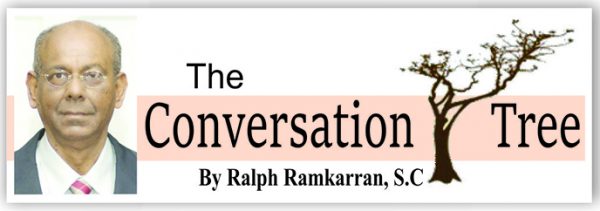
Border disputes with the Dominican Republic, a number of short-lived presidencies, assassinations, and much unrest, prompted the United States to invade Haiti in 1915 to protect its economic interests. The US’s occupation ended in 1934 but its economic control by way of resident American economic and financial experts remained. Three years later the Parsley Massacre occurred when the Dominican Republic, under the dictator Rafael Trujillo, killed 30,000 Haitians in the border area between the two countries.
In 1957 Francois “Papa Doc” Duvalier seized power and declared himself to be president for life. Upon his death, he was succeeded by his son, 19-year-old, Jean-Claude “Baby Doc” Duvalier in 1971. He, in turn, fled Haiti in 1986. Several coups followed until Jean-Bertrand Aristide, a Silesian Priest, was popularly elected with 67 percent of the vote in free and fair elections in 1990. His presidency was interrupted by a coup in 1991 but Aristide was returned to office in 1994 after Brigadier-General Raul Cedras was forced to give up power. It was during the rule of Papa Doc Duvalier that organized criminal gangs in support of politicians first gained notoriety. The “Tonton Macoute” killed and tortured thousands on behalf of the Duvalier dictatorships and thrived in a country beset by poverty, exploitation and disasters throughout its history.
For the first time in Haiti’s history, the Aristide Presidency brought about a virtual revolution in domestic policy in favour of the poor and disadvantaged. His reforms included increased access to health care and education, including adult education and literacy; improving civil rights and the judicial system; doubling the minimum wage; food distribution to those suffering from hunger and food insecurity; livelihood support and training; and dissolving the military, which was responsible for Haiti’s coup prone history.
Aristide’s second term was marked by unrest, with several attempts to overthrow him, and conflict between armed gangs representing political interests opposed to Aristide. Behind these political interests were Haiti’s oligarchs who are, and have always been, in control of Haiti’s economy. The many coups by the military over the decades represented the interests of Haiti’s ruling oligarchy or a section of it. The United States pressured Aristide to resign. The diplomatic intervention against Aristide was reflective of the influence of the US in Haiti throughout its history and over the past few decades.
The loss by the oligarchy of its armed might when the military was abolished, gave rise to criminal gangs acting on behalf of post-Aristide politicians and of the oligarchs. As the gangs grew larger, they began to resort to crime to supplement their income. As they resorted more and more to crime to survive, the war began to involve fights among the gangs over territory. Each gang needs territory to criminally exploit the people who live in that territory. This chaotic situation in Haiti was aggravated by the cholera epidemic, which occupying UN troops were responsible for starting and spreading, which killed 10,000 persons and affected some 800,000. A devastating earthquake in 2010 substantially destroyed the capital, Port au Prince, and killed 250,000 persons.
The politicians who succeeded Aristide, including Ariel Henry, restored, or sought to restore, the influence of the oligarchs and the influence of Haiti’s ruling class. As criminalization of politics and weak systems allowed the drug trade and assorted criminals to migrate to Haiti, the main objective of politicians was transformed into making as much money as possible from crime through politics. It appears, although the evidence is very slim, that President Juvenal Moise intended to expose some, or more than some, drug traffickers, and this could have been the reason for his assassination.
The largest gang, the “G9 Family and Allies,” or “G9,” led by Jimmy “Barbeque” Cherizier, which has been reported to be associated with President Moise, emerged as the leader among the large number of gangs and has made alliances. The gangs have developed more capacity in terms of the weapons and military strategy and capacity. They have also begun to display a high degree of political sophistication by calling themselves “revolutionaries,“ criticizing the oligarchs and claiming to represent the poor. They have demanded representation on the presidential council, which is being set up by Caricom, the UN and other partners to appoint a prime minister and an electoral council for free and fair elections. The expectation is that the planned deployment of Kenyan soldiers will take place after the establishment of the presidential council to “restore order.” Cherizier has threatened civil war if their demands are not met. The current military capacity of the gangs and their control of most of the capital suggest that unless their demands are negotiated and the power and influence of Haiti’s ruling class is curbed, there is much worse than what now prevails in store for Haiti.
(This column is reproduced with
permission from Ralph Ramkarran’s blog, www.conversationstree.gy)




